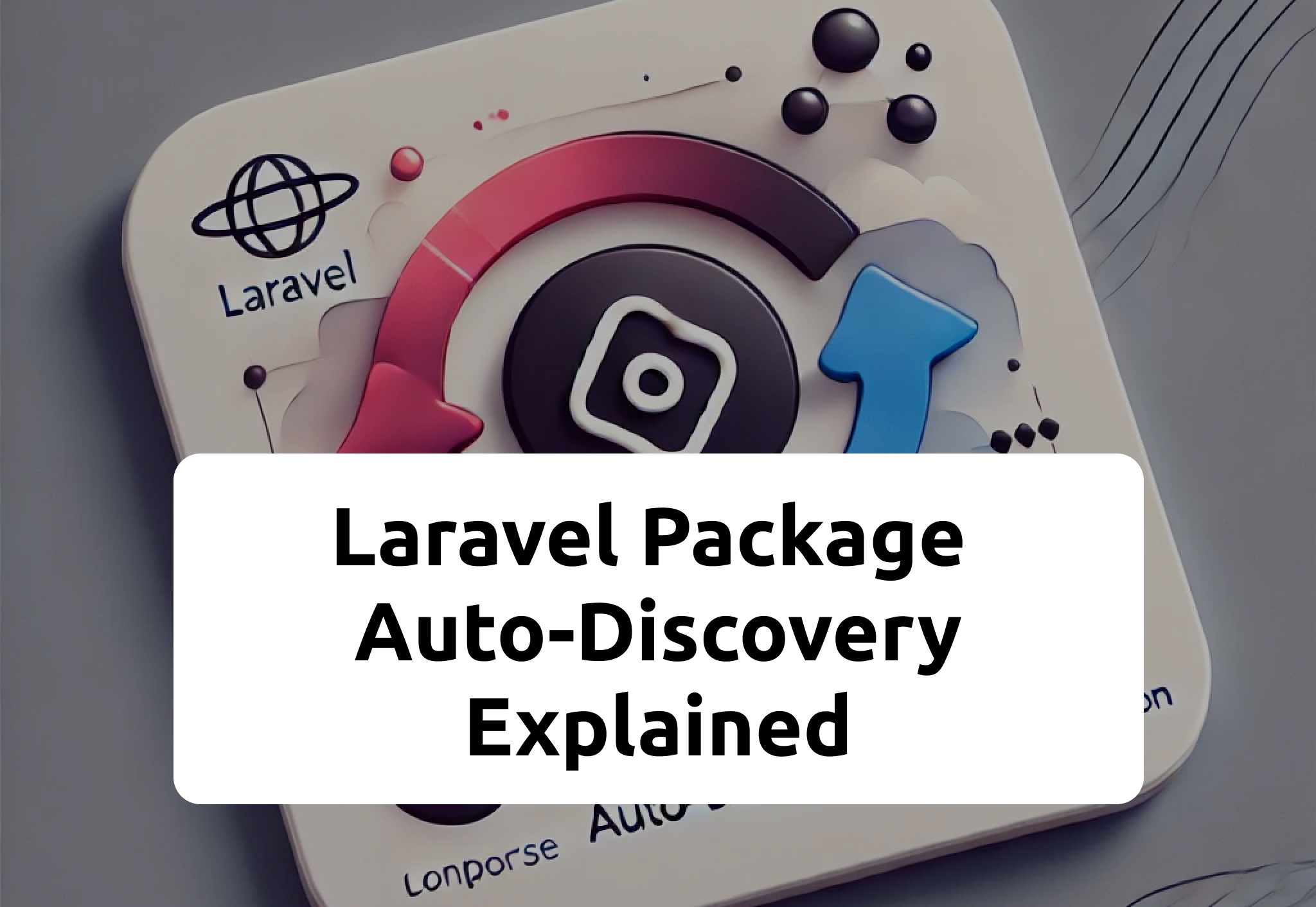Laravel Package Auto-Discovery Explained
November 06, 2024 3 min reading

Laravel is packed with features that simplify development, and one of these powerful tools is package auto-discovery. While it works seamlessly in the background, not everyone knows what it does or why it exists. Auto-discovery takes away the manual effort of registering packages, letting you install and immediately use them without extra setup. But if you're a Laravel enthusiast like me, you’ll want to understand how this magic happens. In this article, we'll dive into the inner workings of Laravel’s package auto-discovery, exploring what it does and why it’s so effective.
What Is Package Auto-Discovery in Laravel?
Laravel’s package auto-discovery is a tool that automatically registers and boots Laravel-specific Composer packages, handling their setup behind the scenes. Typically, the core of any Laravel package is a service provider, which acts as an entry point. It registers features like container bindings, routes, migrations, and other resources that make the package functional. To enable auto-discovery, packages include an “extra” section in their composer.json file, which tells Laravel which service providers and facades should be automatically registered.
How Does Laravel’s Package Auto-Discovery Work?
When the Laravel application boots, it needs to register and load all necessary service providers. The list of package service providers is stored in an automatically generated file, bootstrap/cache/packages.php, which might look like this:
1<?php return array ( 2 'inertiajs/inertia-laravel' => 3 array ( 4 'providers' => 5 array ( 6 0 => 'Inertia\\ServiceProvider', 7 ), 8 ), 9 'laravel-shift/blueprint' =>10 array (11 'providers' =>12 array (13 0 => 'Blueprint\\BlueprintServiceProvider',14 ),15 )16);This file is generated by the artisan package:discover command, which runs automatically whenever composer dump-autoload is triggered (such as after composer install or composer update). The command scans vendor/composer/installed.json for all installed packages and checks for an “extra” section in each package's composer.json. This section contains the package's providers and facades, which are then stored in bootstrap/cache/packages.php to streamline package loading during each boot.
How to Customize or Disable Auto-Discovery
In some scenarios, you might want to exclude certain packages from auto-discovery—for example, if a package conflicts with another, is only needed conditionally, or needs to be configured before use. In these cases, you can use traditional manual registration for your service providers.
To prevent loading specific package, you can use the “dont-discover” part of your application’s composer.json like so:
1"extra": {2 "laravel": {3 "dont-discover": [4 "barryvdh/laravel-debugbar"5 ]6 }7},If you would like to disable autoload completely, you can use the “*” in “dont-discover”
1"extra": {2 "laravel": {3 "dont-discover": [4 "*"5 ]6 }7},Conclusion
Laravel’s package discovery is a powerful tool we often take for granted. While most developers may never need to modify it, understanding its inner workings can save time during complex debugging or allow for finer control when integrating packages. Knowing what’s happening behind the scenes can give you an edge, especially in those late-night debugging sessions we all know 🌚.